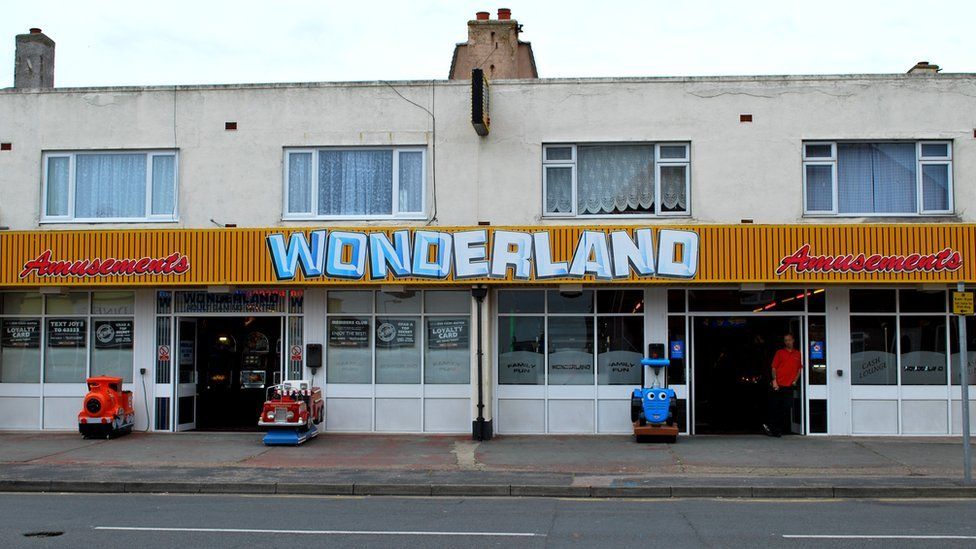Jaywick and Middlesbrough most deprived areas in England
- Published

A seaside village in Essex is the most deprived neighbourhood in England, government figures show.
Jaywick, near Clacton, was found to be the country's most deprived area, the Department for Communities and Local Government (DCLG) has reported.
It found the Middlesbrough council area had the highest proportion of deprived neighbourhoods, while Birmingham had the largest number.
Officials judged 32,844 neighbourhoods across England for the study.
The department's Indices of Deprivation scored neighbourhoods according to seven key areas including crime, health and employment.
It found almost half of Middlesbrough's 42 neighbourhoods were among the most deprived 10% nationally, while it classed 162 of Birmingham's 253 neighbourhoods as highly-deprived.
Report author Baljit Gill said: "There are concentrations of deprivation in large urban conurbations, areas that have historically had large heavy industry, manufacturing and or mining sectors, coastal towns, and large parts of east London.
"There are also pockets of deprivation surrounded by less deprived places in every region of England."
Jaywick was also named the most deprived neighbourhood following the 2010 report.
Gill Elkins, of the Jaywick and Tudor Residents Association, said she was disappointed but not surprised by Jaywick retaining its ranking.
She also said the latest findings, based on figures from 2012-13, will fail to take into account recent investment in improving roads and homes.
Ms Elkins said: "A lot of our infrastructure still needs improving but things are happening here.
Deprivation in England
In numbers
32,844
Neighbourhoods surveyed
-
3,284 considered "highly-deprived" in 2015
-
83% also featured among 2010's most deprived
-
61% proportion of council districts containing at least one of England's most deprived neighbourhoods
"There is still a lot of community spirit here, everyone knows each other and is willing to help each other out, things like that don't seem to be considered as part of the deprivation figures."
Clacton MP Douglas Carswell said government investment was needed to stop the Jaywick area from "spiralling" further.
The UKIP politician said a minimum housing standard is needed to stop the government "subsidising squalor".
Jaywick residents spoke of the stigma surrounding the town in this film, first shown in April
Leader of the Labour-run Blackpool Council Simon Blackburn said he was not surprised at the data.
"Every day we see the struggles that Blackpool families face. That is why every morning every primary school child in Blackpool can receive a free breakfast," he said.
"If we don't provide it there will be children who don't have anything to eat until lunchtime - that is the harsh reality."
A DCLG spokesman said: "We will ensure that every part of Britain benefits from a growing economy and that everyone who works hard gets the opportunities they need to succeed."
Elsewhere, South Tyneside's overall deprivation score rose by just over 10% since 2010 - the largest percentage increase for a single area.
South Shields MP Emma Lewell-Buck said it was worrying and blamed the loss of public-sector jobs in the area and cuts to public funding.
The Labour MP said: "It's true that savings need to be made, but the Government needs to share the burden fairly.
"Since 2010 the poorest areas have faced budget cuts 16 times greater than the wealthiest - that just isn't fair."
Hackney in London saw the the largest improvement in its score since 2010, with nearly 25%.
But the report warned the figures represent relative deprivation, and do not represent changes in actual deprivation over time.
"Differences between areas in their actual levels of deprivation may be very small," it said.
- Published23 April 2015
- Published31 January 2013
- Published6 July 2012